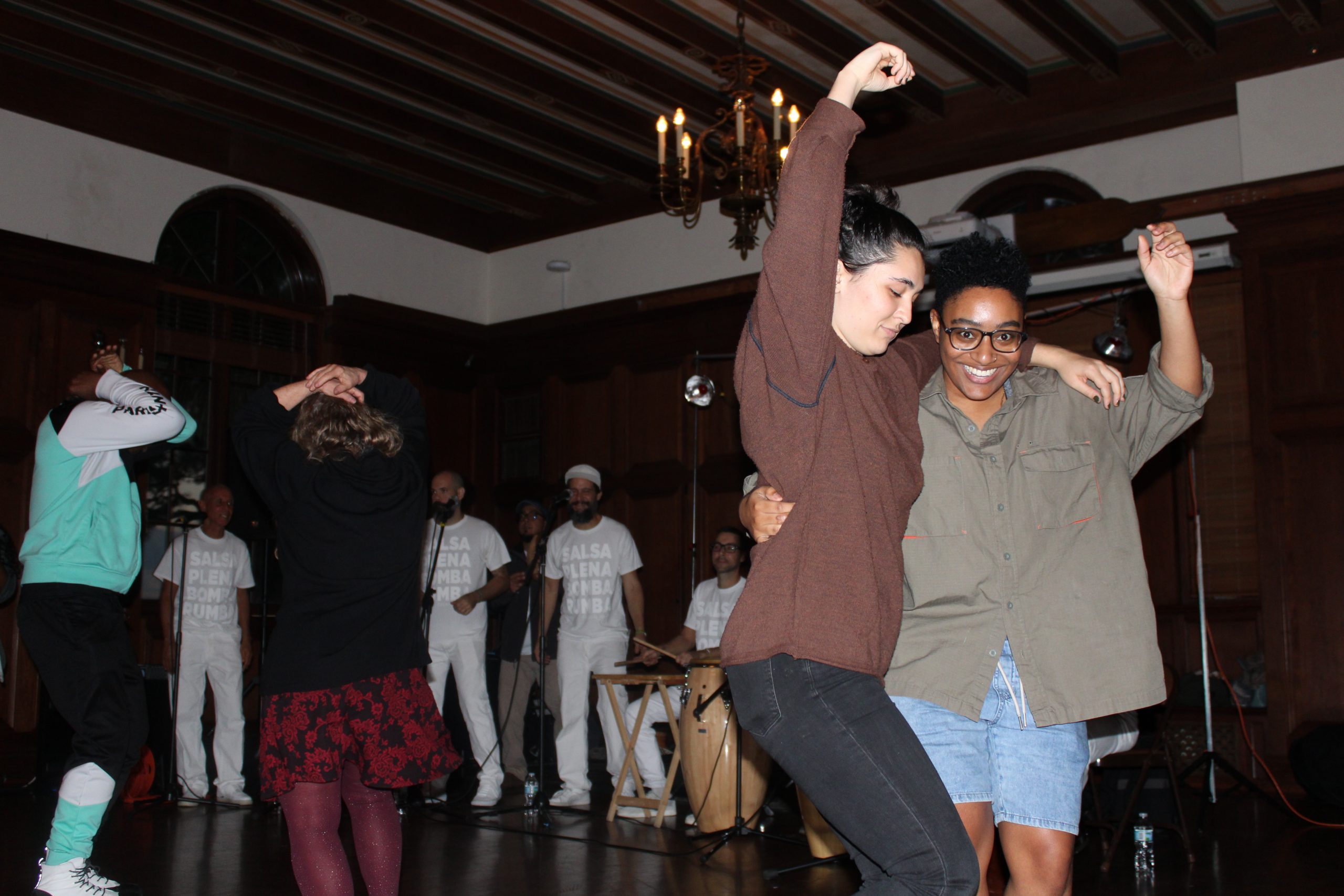On Saturday Feb. 1, College Hall welcomed a variety of artists to perform at Sur La Bay, a concert organized by the Black History Month Committee to celebrate Africana music, dance and culture. Students were treated to the electrifying violin of Undine Shorey, DJ Karim’s powerful speech on hip-hop and the powerful rhythmic drums of Totin Agosto Arara y la Liga Rumbera. With a warm sunset as the backdrop, Sur La Bay got students on their feet and moving in celebration of culture.
Local artist Undine Shorey started the event with an invigorating performance of original songs that demonstrated her talent as a songwriter, guitarist and violinist. Shorey played “Dreams,” “Going Back” and her own version of “Amazing Grace,” all from her Quality of Life EP. Students listened keenly, as Shorey blended R&B, jazz and soul seamlessly through the power of her electric violin.
DJ Karim took the stage afterwards to demonstrate his skills on the turntable, with a quick set before starting on his presentation. Karim, who also works as a teacher at Booker Middle and High School, introduced West African culture to the audience by comparing rappers with griots, West African historians, storytellers, poets and musicians. Karim argued that rappers act as storytellers and poets like griots, using music as a vehicle for Black cultural expression.
Totin Agosto Arara y la Liga Rumbera were invited by Professor of Caribbean and Latin American Studies Hugo Vierra-Vargas. Rumba originated in Cuba, but uses African styles and influences through a mixture of African drums and Latin American percussion that produces lively rhythmic music. Vierra joined the group on stage and played the güiro, a Latin American percussion instrument. It didn’t take long for students to take to the dance floor as cheers and applause combined with the music to create a pulsing ambience under the chandeliers of College Hall.
The group’s set was part of a larger effort to expand the discussion of Black expression outside of the U.S., as the African diaspora reaches all corners of the world.
“It’s the history of not only the music in general, but the people who made that music genre, so people of African descent; in particular in Cuba and Puerto Rico,” Vierra said. “That music becomes a vehicle for a reaffirmation of an experience that has been marginalized not in the same way as the US, but also in a way marginalized in the Caribbean. That had been used as a vehicle for reaffirmation of an African diasporic dimension of these places in the Caribbean.”
Black History Month serves as a time of remembrance and celebration of Black expression and identity. Culture allows for a connection between people that transcends time and is constantly evolving to accommodate new voices coming to fruition, demanding visibility for those that are often left behind.
“Those that were before you, were,” Vierra said. “You are part of a tradition, you are part of a lineage, you are part of a people that were there before you and that’s important because it gives you a feeling of belonging to other human beings that are no longer here, but that were important for you to be here. Human beings that are no longer with us are fundamentally important in you being here today. It’s important to have an anchor, something you can hold.”
Sur La Bay once again brought an audience to College Hall’s music room, as students beamed with excitement, grabbing onto each other as colleagues and friends to celebrate the differences that make identity so unique. With many more Black History Month events planned students can look forward to a month long celebration of Black culture and expression, not in the U.S., but around the world.
“It places us in a crossroads between the past and the present,” Vierra said. “A moment like Black History Month is very crucial. It’s a moment where time comes to a crossroads. We think about the past, who we are, why we are here, but it’s also important to think of it in the present because it gives us strength and the tools to think of the future.”
Quotes from Professor Vierra were originally translated from Spanish

